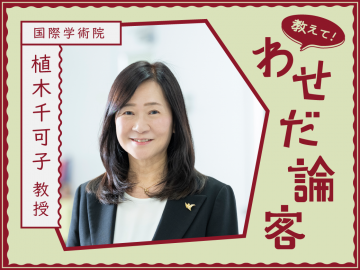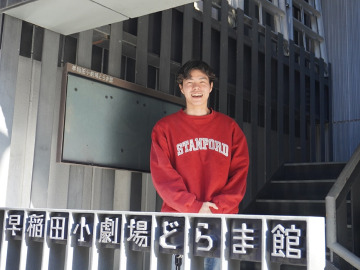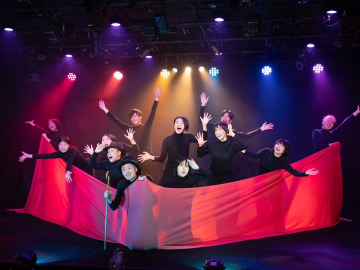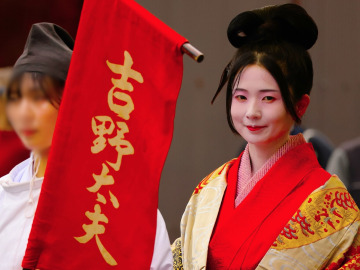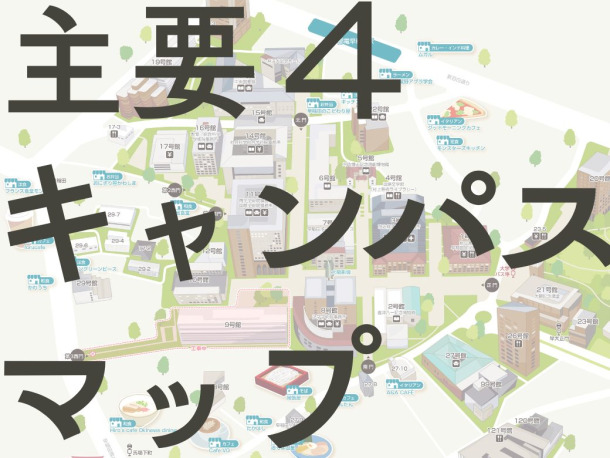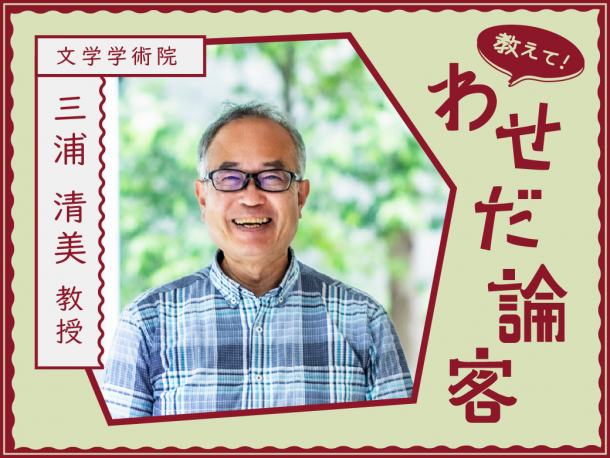
Many Waseda University students may think that social issues are somewhat difficult to approach. In the new corner, "Lectures by Experts'', we will focus on specific problems facing society and ask four Faculty to give us hints on how to solve them.
The theme for 2023 is "How to Keep the Peace?" The third guest will be from medieval Russian literature. The third guest is Kiyoharu Miura Professor (Faculty of Letters, Arts and Sciences), who studies medieval Russian literature and medieval Russian history. In the first part, he talked about the theme while reading about the invasion of Ukraine from the perspective of Russian "history.
Professor Miura, how can we keep the peace?
The first step is to respect the other person and try to understand them. By looking at the other person's internal circumstances, you may be able to find a path to reconciliation.
Russia invades Ukraine, which is said to be a brotherly country. What is the meaning of “unity” as interpreted in history?
Professor Miura, you specialize in medieval Russian history. Could you please tell us your view on Russia's ongoing invasion of Ukraine?
In July 2021, President Putin published a paper titled "On the historical unity of Russians and Ukrainians,'' and has maintained that Ukraine is a country with unity with Russia's own country. I feel that this kind of historical perspective lies behind the recent invasion of Ukraine.
However, as long as the Ukrainian side says, "We are an independent entity,'' that claim cannot be accepted, and a military invasion will never be tolerated.
However, President Putin's claims of "unity" are not completely bogus or fake. I think there are some aspects that can be viewed that way from a historical perspective.
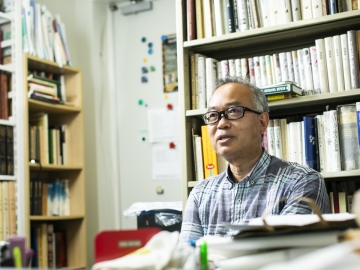
Could you please tell us specifically what you mean by "unity"?
First, let's take a look at the origins of Russia.
In the late 9th century, the first East Slavic state, Kievan Rus', was established. Both Russia and Ukraine have roots in Kievan Rus', with its capital located in present-day Kyiv, Ukraine. This is why President Putin insists on the "unity of the two peoples."
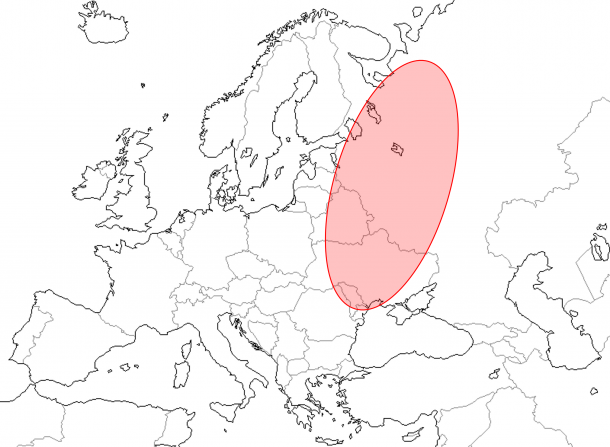
Approximate location of Kiev Rus. It was located in a place that includes present-day Ukraine and western Russia (blank map provided by CraftMAP)
In 988, Vladimir, the ruler of Kievan Rus', accepted Greek Orthodoxy. I will discuss the details in the second part, but Greek Orthodoxy is very different from Roman Catholicism, which is the largest denomination of Christianity. After the fall of Kievan Rus in the mid-13th century, the principality of Moscow, the prototype of Russia, was born, taking over its religious main part. Greek Orthodoxy was accepted by Kievan Rus' and inherited by the Principality of Moscow...Russia views its own religion and roots in such a continuous way.
To make it easier to understand, let's replace this relationship with Japan. For example, the Nihon Shoki records that the founding place of Japan was Kashihara in present-day Nara Prefecture. Ukraine (Kiv) seen from Russia is like Nara seen from Tokyo, a place with roots in its own country.
I believe that Ukraine's approach to Western countries, such as its application to join NATO, made President Putin and Russia feel the pain of having a part of themselves ripped away. This may have led to the sense of crisis that President Putin expressed at the start of the invasion: "There was no other way to protect Russia and its people.''
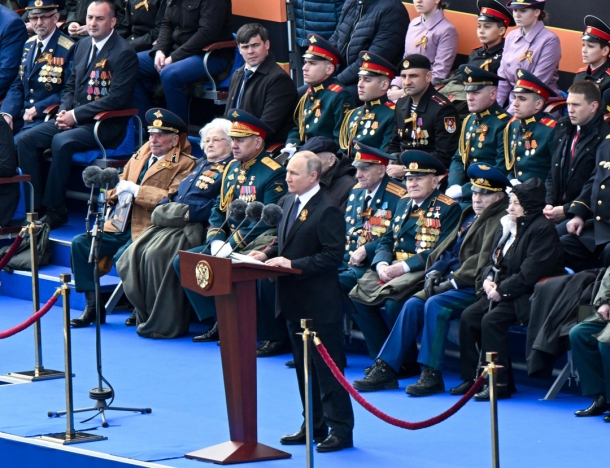
President Putin giving a speech on Red Square in Moscow in May 2022 (Photo provided by Kyodo News Images)
On the other hand, what kind of history has Ukraine followed?
After the fall of Kievan Rus', the Principality of Moscow, which later became Russia, became the center of power in the northeast, while the territory of Ukraine continued to be ruled by other ethnic groups for a while. In the 14th century, most of Ukraine came under the control of the Grand Duchy of Lithuania and Poland. As a result, Ukraine was influenced by Poland, which was experiencing a Renaissance, and laid the foundations for accepting Western culture.
Furthermore, armed peasants called Cossacks appeared in the 15th and 16th centuries. During the struggle with Poland, Lithuania, and other countries, a new country called Ukraine was founded with Greek Orthodox Christianity as its core.
After that, after a long history of being incorporated into the Russian Empire and the Soviet Union, Ukraine regained its independence as the Republic of Ukraine in 1991 after the collapse of the Soviet Union. Looking at it this way, it can be said that Ukraine has continued to seek freedom and independence.
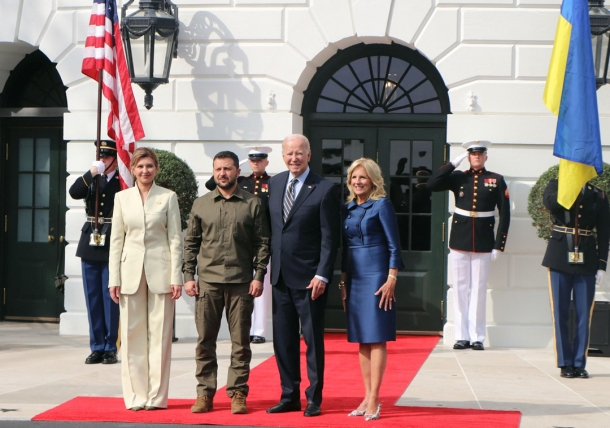
President Zelenskiy being welcomed by President Biden at the White House in September 2023 (Photo provided by Kyodo News)
Trying to know and understand the other person is the first step towards peace.
Was there ever a time when Russia and Ukraine had good relations?
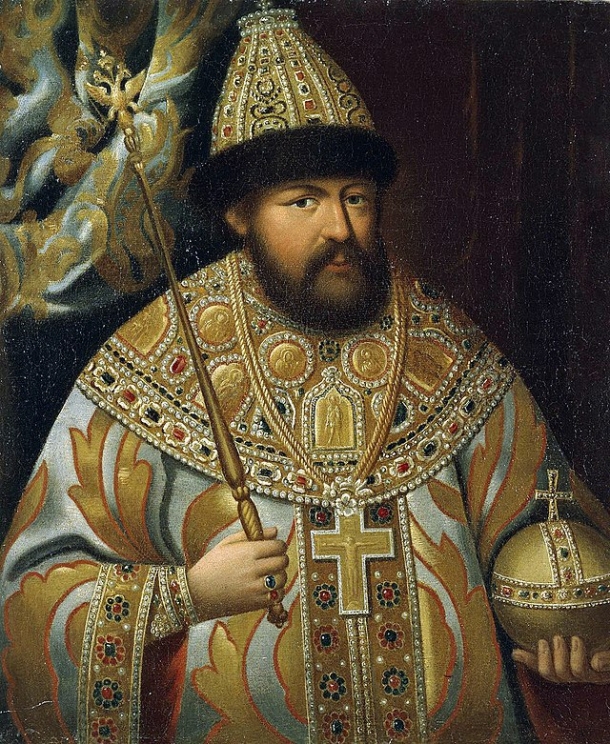
Tsar Alexei (author unknown, Hermitage Museum collection)
Around the 17th century, Russia and Ukraine had good relations. It was the time of Tsar Alexei, who ascended the throne in 1645. Tsar Alexei was the father of Peter the Great, who is known for promoting Russia's modernization policy, and was also the person who laid the groundwork for the Russian nation's rapid rise through Westernization.
He cherished his relationships with Ukrainian intellectuals who were familiar with Western Europe, and aimed to embody both the old Russia and the new Russia. Furthermore, they maintain ties with the country's Cossacks and have achieved great success abroad.
I believe that Tsar Alexei's attitude of devoting himself to his role without abusing his power provides important hints about what a leader should be like in Russia.
Professor Miura, how would you answer the question "How do we keep the peace?''
I think it comes down to "knowing the other person." I believe it is important to get to know and interact with others with respect, or in other words, to strive for understanding. Of course, this is true not only between countries but also at the level of close human relationships.
With regard to the recent invasion of Ukraine, I believe that by deepening our understanding of how the country of Russia has continued and what internal circumstances it faces, we will be able to see new aspects of it. Of course, the use of violence is never acceptable. However, an attitude of paying attention to the other party's points and trying to understand them will definitely lead to reconciliation.
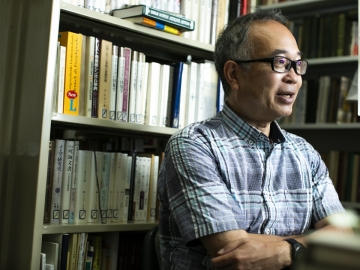
In the second part of the interview (released on October 25th), he will explain Russia's invasion of Ukraine from the perspective of his religious views, and will also deliver a message to Waseda University students. Stay tuned!
Kiyoharu Miura
Professor Faculty of Letters, Arts and Sciences. Ph.D. (Literature). Her areas of expertise are medieval Russian literature and medieval Russian history. His books include "The Origins of Russia: From Centerless Forests and Grasslands to the Third Rome'' (Kodansha, 2003) and "Russia's Thought Circuit: The Deep Depths of the Invasion of Ukraine from its Spiritual History'' (Fusosha, 2022).
Interview and text: Akane Ichikawa (Graduated from School of Culture, Media and Society in 2017)
Photography: Kota Nunokawa
Image design: Ryo Uchida
▼Click here for the second part!
"How do we keep the peace?" Please Tell Us! Professor Miura (Part 2)

